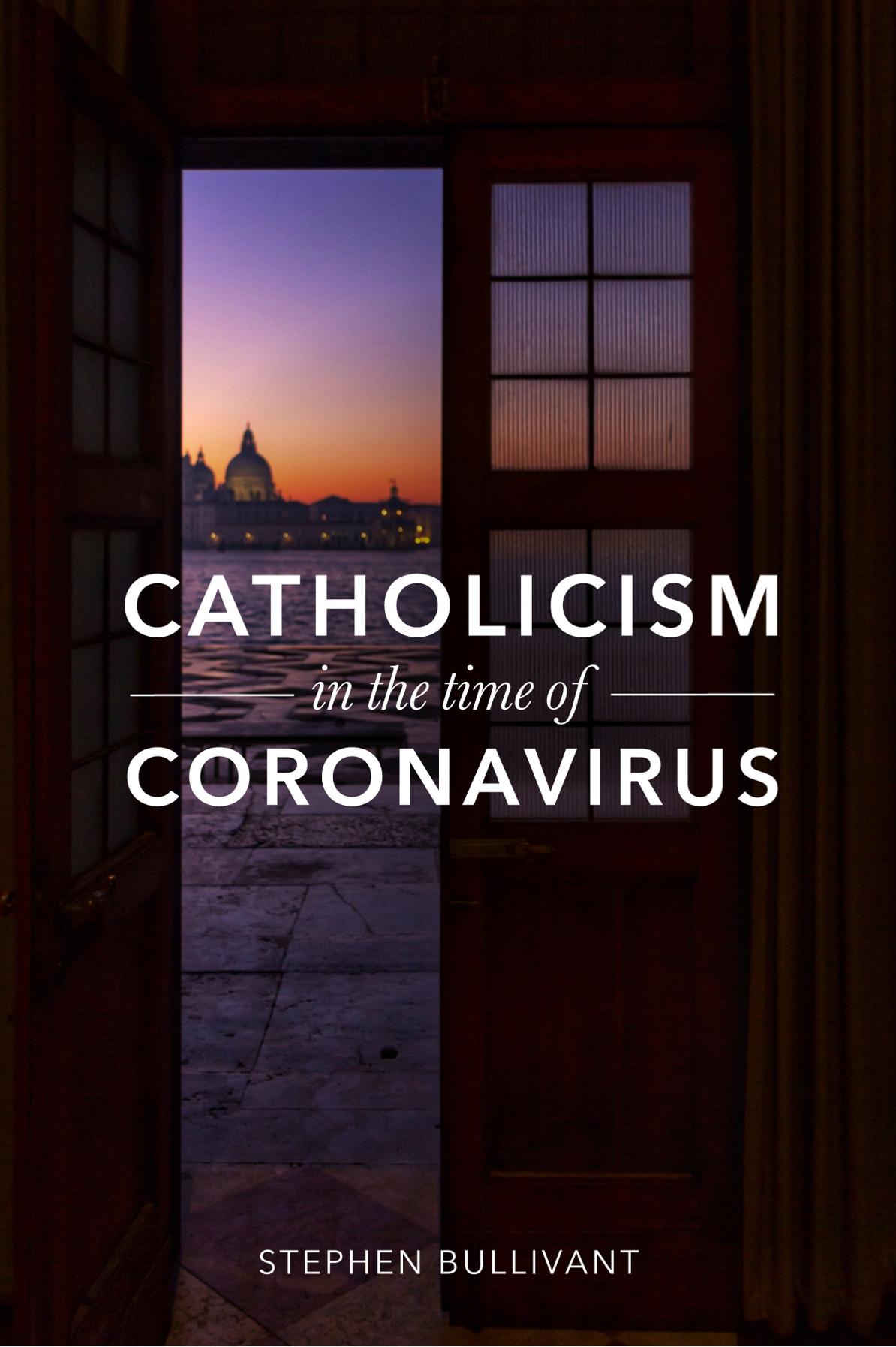“Our brethren who are freed from this world by the Lord’s summons are not to be lamented, since we know that they are not lost, but sent before; that, departing from us, they precede us as travellers, as navigators are accustomed to do; that they should be desired, but not bewailed; that the black garments should not be taken upon us here, when they have already taken upon them the white raiment there.”
–St. Cyprian of Carthage
In the late 240s AD, a grave new illness arose, wreaking terror throughout the Roman Empire for the best—or rather worst—part of the next two decades. This sickness, originating in the south-eastern reaches of the then-known world, would suddenly appear in a major city and transport hub: Alexandria, Carthage, Rome. It would torment and ravage the inhabitants over the cooler winter months, then ease over the summer. Often enough, it would return the next year. And sometimes the next.
Exactly what this illness was, modern scholars are not sure. While there have been various suggestions, including smallpox and bubonic plague, the smartest money is probably on one of two possibilities: either Ebola or an especially virulent influenza-like illness. In his 2017 book The Fate of Rome: Climate, Disease, and the End of an Empire, historian Kyle Harper draws instructive comparisons to the global “Spanish” Flu crisis of 1918–1920 and the more recent outbreaks of H5N1 “avian flu”. Today, another parallel leaps all too readily to mind: our current coronavirus or COVID-19 pandemic.
Though there are clear and (for us) merciful differences – the “diseased putrefaction” of bodily extremities, necessitating amputation, being just one—there are nonetheless some striking similarities. Here we rely on the first-hand testimony of St. Cyprian, who was bishop of Carthage in modern-day Tunisia when the disease hit the city around AD 250. He speaks, for instance, of “the attack of fevers.” Severe gastrointestinal symptoms such as diarrhea and vomiting, which afflict a significant number of coronavirus sufferers, were also a major hallmark: “The bowels, relaxed into a constant flux, discharge of the bodily strength…The intestines are shaken with a continual vomiting.” Specific symptoms aside, the malady clearly thrived on close person-to-person contact, as per our own obsessions with “social distancing” and “self-isolation”. Hints from other ancient sources also suggest that, while no age group was truly “safe,” those in middle and older age brackets were at least equally, if not (as with COVID-19) harder hit. (This contrasts with the 1918–1920 pandemic, for example, which disproportionately hit the young and fit.
Though medically and historically interesting, comparing symptoms is not what is most helpful in considering our current situation. For our purposes, the most salient link between the so-called “Plague of Cyprian” and our present global crisis is something they both share with countless other such outbreaks throughout human history: the staggering costs in terms of lives and livelihoods; the anguish—physical, mental, emotional, and spiritual-afflicting millions, even billions, of people; and the stress and strains put on all, but especially on those whose calling it is to serve, protect, treat, and/or care for others.
Writing within a year or two of Cyprian, another North African bishop, St. Dionysius of Alexandria, noted that “now, indeed, everything is tears and everyone is mourning, and wailings resound daily through the city because of the multitude of the dead and dying.”…St. Dionysius, just a few sentences later remarks: “Truly the best of our brethren departed from life [having contracted the disease in the course of their care for others] including some presbyters and deacons and those of the people who had the highest reputation.”
In a groundbreaking 1996 book, The Rise of Christianity, the American sociologist Rodney Stark turned the tools of his trade on the early Church—with fascinating results. Among other things, he highlighted the role that such pandemics—and Catholics’ response to them, which differed from other people’s—played in the ultimate Christianization of the Roman Empire. St. Pontius, who served as a deacon of Cyprian’s during the period in question, describes the “numberless” inhabitants in Carthage succumbing to the “dreadful plague”:
“All were shuddering, fleeing, shunning the contagion, impiously exposing their own friends—as if with the exclusion of the person who was sure to die of the plague, one could also exclude death itself. Lying about over the whole city were, no longer bodies, but the carcasses of many, demanding the pity of those passing by, who contemplated a destiny that in their turn would be their own.”
The city’s Catholics, however, were a notable exception to this general trend. While others fled to the countryside (in many cases, one assumes, taking the disease with them), as significant number of Pontius’ coreligionists stayed behind to nurse any in need, irrespective of their faith. Nor was this a local aberration. Over in Alexandria, for instance, Dionysius reports: “Most of our brethren were unsparing in their exceeding love and brotherly kindness. They held fast to each other and visited the sick fearlessly, and ministered to them continually, serving them in Christ.”
Early the next century, as a new plague ravaged parts of the Empire, Catholics again came to the help of those in need. According to Eusebius of Caesarea:
“In the midst of such illness, they alone [the Catholics] showed their sympathy and humanity through their deeds. Every day some continued caring for and burying the dead, for there were multitudes who had no one to care for them; others collected those who were afflicted by the famine throughout the the entire city into one place, and gave bread to them all.”
All things considered, it is perhaps not surprising that this selfless heroism won both admiration and converts: “[These things were] reported abroad among all people, and they glorified the God of the Christians; and, convinced by the facts themselves, confessed that they alone were truly pious and religious.” While Catholic writers may be suspected of some bias here, there is no good reason to doubt this basic assessment: even the Church’s enemies admitted the public power and persuasive pull of Catholic love for “the least of these” (Matt. 25:31– 46). In addition, Stark demonstrates how this care for the sick and dying would have had other, more subtle implications. For example, even the most basic nursing care—bringing water and food to the bedridden, say—can dramatically raise a patient’s survival prospects. Given the lack of basic hygiene and poor understanding of how contagions spread, the odds were high of contracting the latest disease at some time anyway, whether one tried to flee or not. Being a Catholic, and thus belonging to its mutual nursing syndicate, could greatly increase one’s chances of surviving. Even just knowing Catholics would help, since if they knew where you lived, they’d be able to send someone to you. These two facts—a higher survival rate for Catholics, and for people already connected to Catholics—would have important repercussions once the pandemic had passed: (1) a higher-than-before proportion of Catholics compared to the pagan population; and (2) a good number of pagans more closely networked with, and grateful to, Catholics than they had been before. Hence, they themselves were more susceptible to conversion. Repeat this whole process every generation or two and, combined with some other factors (e.g., a trend for bigger families, not least due to Catholics’ countercultural aversion to both abortion and infanticide), you have an important part of how “the West”—including North Africa and the Near East—was Christianized.
Yet so much of what is now taken for granted—from public hospitals and hospices to famine relief charities and social security—were avowedly Catholic innovations. As Bart Ehrman, a scholar of early Christianity (who is an agnostic), puts it:
“By conquering the Roman world, and then the entire West, Christianity . . . changed the way people look at the world and choose to live in it. Modern sensitivities, values, and ethics have all been radically affected by the Catholic tradition…Without the conquest of Catholicism…billions of people may never have embraced the idea that society should serve the marginalized or be concerned with the well-being of the needy, values that most of us in the West have simply assumed are “human” values.”
Ehrman is by no means alone in this assessment.”
Lk 10:37
Love, and trust in Him,
Matthew



